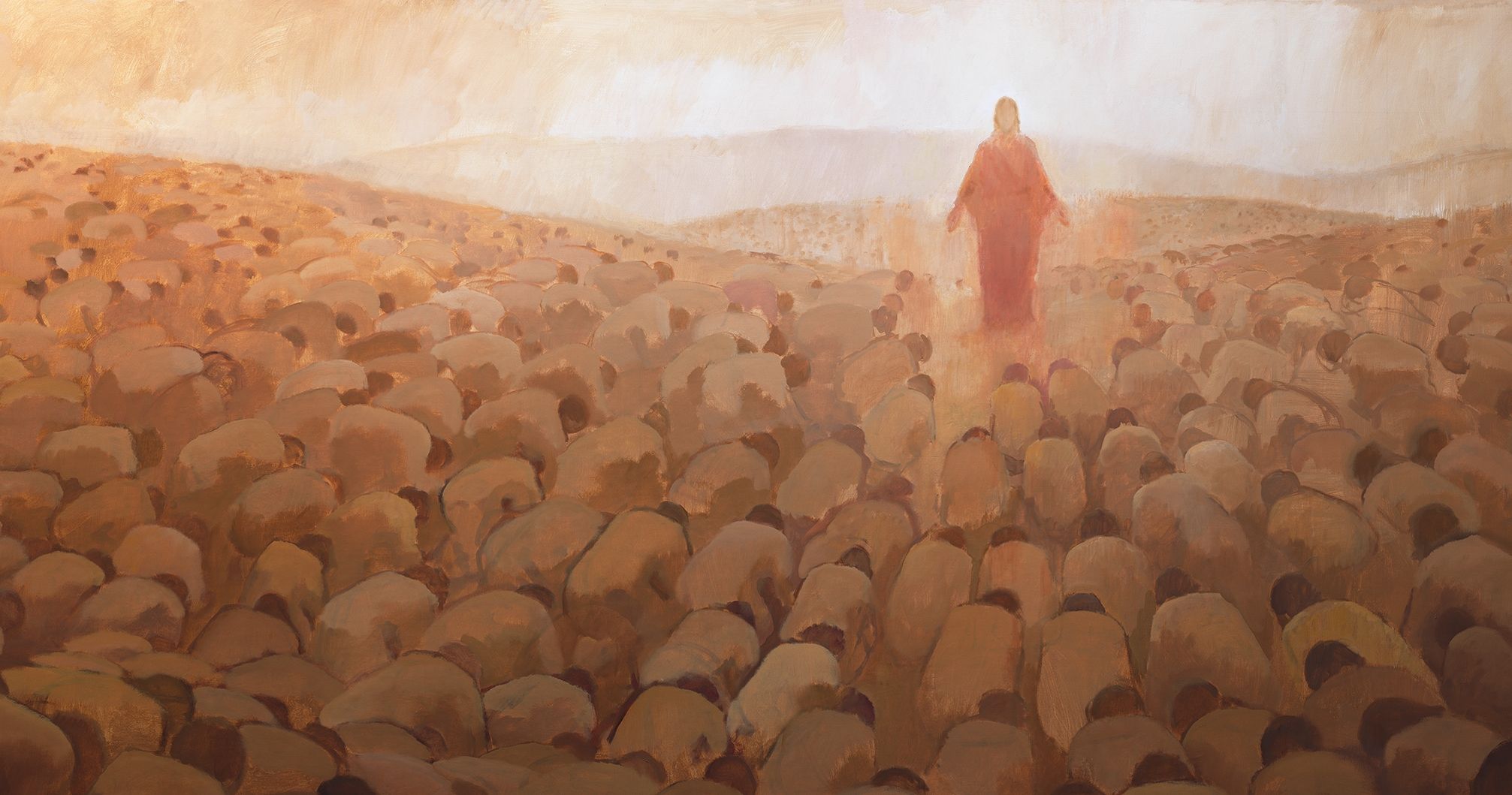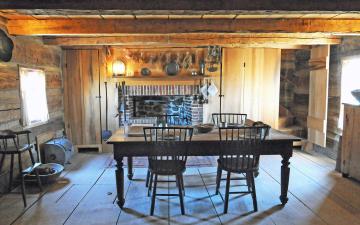You are here
Book of Mormon Central is in the process of migrating to our new Scripture Central website.
We ask for your patience during this transition. Over the coming weeks, all pages of bookofmormoncentral.org will be redirected to their corresponding page on scripturecentral.org, resulting in minimal disruption.

D&C 29
New from BMC
Watch videos from Gospel scholars and teachers to learn more about these sections of the Doctrine and Covenants. Book of Mormon Central produces weekly videos from Tyler Griffin, Taylor Halverson, John Hilton III, Anthony Sweat, Casey Griffiths, Stephanie Dibb Sorensen and Marianna Richardson. Read commentaries and other resources from KnoWhys, Steven C. Harper, Casey Griffiths, and Susan Easton Black.
Overview
Doctrine and Covenants 29
Daily Reading Plan
Structure your personal scripture study by following a 15-minute, day-by-day plan. Each day's assignment includes the required scripture passages from the Come, Follow Me curriculum, as well as suggestions for additional resources to bring context and understanding to your study. For the best experience, use our Reading Plan in the free ScripturePlus app! You can track your progress and have access to the best resources.
Monday
- Commentary: Section 29 Context, Steven C. Harper
- Scripture: D&C 29:1–8
- Commentary: Casey Paul Griffiths, Doctrine and Covenants Minute, Doctrine and Covenants 29:1–8.
-
Quote: The Lord has long spoken of the necessary preparations for His Second Coming. To Enoch, He declared, “Righteousness will I send down out of heaven; and truth will I send forth out of the earth, … and righteousness and truth will I cause to sweep the earth as with a flood, to gather out mine elect from the four quarters of the earth.” The prophet Daniel prophesied that in the latter days the gospel would roll forth unto the ends of the earth as a “stone [that is] cut out of [a] mountain without hands.” Nephi spoke of the latter-day Church as being few in number but spread upon all the face of the earth. The Lord declared in this dispensation, “Ye are called to bring to pass the gathering of mine elect.” My young brethren, your mission is a great opportunity and responsibility, important to this promised gathering and linked to your eternal destiny.
Neil L. Anderson, “Preparing the World for the Second Coming,” April 2011 General Conference.
Tuesday
- Scripture: D&C 29:9–13
- Commentary: Casey Paul Griffiths, Doctrine and Covenants Minute, Doctrine and Covenants 29:9–13.
- Video: Chickens and the Second Coming - Casey Griffiths (D&C 29)
Further Reading
Wednesday
- Scripture: D&C 29:14–21
- Commentary: Casey Paul Griffiths, Doctrine and Covenants Minute, Doctrine and Covenants 29:14–21.
-
Quote: Many years ago, I took the Scouts on a campout in the desert. The boys slept by a large fire they had made, and like every good Scout leader, I slept in the back of my truck. In the morning when I sat up and looked at the campsite, I saw one Scout, whom I will call Paul, who looked particularly rough around the edges. I asked how he had slept, and he replied, “Not very well.”
When I asked why, he said, “I was cold; the fire went out.”
I answered, “Well, fires do that. Wasn’t your sleeping bag warm enough?”
No answer.
Then one of the other Scouts loudly volunteered, “He didn’t use his sleeping bag.”
I asked in disbelief, “Why not, Paul?”
Silence—then finally the sheepish reply: “Well, I thought if I didn’t unroll my sleeping bag, I wouldn’t have to roll it up again.”
True story: he froze for hours because he was trying to save five minutes of work. We may think, “How foolish! Who would ever do that?” Well, we do it all the time in much more dangerous ways. We are, in effect, refusing to unroll our spiritual sleeping bags when we don’t take the time to sincerely pray, study, and earnestly live the gospel each day; not only will the fire go out, but we will be unprotected and grow spiritually cold.
When we are complacent with our covenants, we are complicit with the consequences. The Lord has counseled us “to beware concerning yourselves, to give diligent heed to the words of eternal life.” And He further declared, “My blood shall not cleanse them if they hear me not.”
Gary B. Sabin, “Stand Up Inside and Be All In,” April 2017 General Conference. - Video: The End Times - Taylor Halverson (D&C 29)
Thursday
- Scripture: D&C 29:22–28
- Commentary: Casey Paul Griffiths, Doctrine and Covenants Minute, Doctrine and Covenants 29:22–28.
- Video: Little Children and Baptism - John Hilton III (D&C 29)
Friday
- Scripture: D&C 29:29–35
- Commentary: Casey Paul Griffiths, Doctrine and Covenants Minute, Doctrine and Covenants 29:29–35.
-
Quote: Every commandment of God is spiritual in nature. There are no carnal commandments. We have learned this from modern revelation. While the commandments have effect upon the body and temporal things they are all in essence spiritual. The Word of Wisdom is spiritual. It is true that it enjoins the use of deleterious substances and makes provision for the health of the body. But the largest measure of good derived from its observance is in increased faith and the development of more spiritual power and wisdom. Likewise, the most regrettable and damaging effects of its infractions are spiritual, also. Injury to the body may be comparatively trivial to the damage to the soul in the destruction of faith and the retardation of spiritual growth. So I say, every commandment involves a spiritual growth. So I say, every commandment involves a spiritual principle.
Stephen L. Richards, "Keep the Commandments," April 1949 General Conference.
Saturday
- Scripture: D&C 29:36–42
- Commentary: Casey Paul Griffiths, Doctrine and Covenants Minute, Doctrine and Covenants 29:36–39.
-
Quote: Significantly, the temptation to sin is not the only kind of opposition in mortality. Father Lehi taught that if the Fall had not taken place, Adam and Eve “would have remained in a state of innocence, having no joy, for they knew no misery.” Without the experience of opposition in mortality, “all things must needs be a compound in one,” in which there would be no happiness or misery. Therefore, Father Lehi continued, after God had created all things, “to bring about his eternal purposes in the end of man, … it must needs be that there was an opposition; even the forbidden fruit in opposition to the tree of life; the one being sweet and the other bitter.” His teaching on this part of the plan of salvation concludes with these words:
“Behold, all things have been done in the wisdom of him who knoweth all things.“
Adam fell that men might be; and men are, that they might have joy.”
Opposition in the form of difficult circumstances we face in mortality is also part of the plan that furthers our growth in mortality.
Dallin H. Oaks, “Opposition in All Things,” April 2016 General Conference.
Further Reading
- KnoWhy 269: Why Did Lehi Teach that the Fall was Necessary?
Sunday
- Scripture: D&C 29:43–50
- Commentary: Casey Paul Griffiths, Doctrine and Covenants Minute, Doctrine and Covenants 29:40–45.
- Commentary: Casey Paul Griffiths, Doctrine and Covenants Minute, Doctrine and Covenants 29:46–50.
-
Quote: In the few moments allotted to me, I should like to talk about two items, and I do not wish to be misunderstood, but I want to be as clear as I know how to be. These have to do with the use of things in the home which touch that child's character. You heard it said the other day that Satan has no power over a child until eight years of age. I believe that to be true, but I wish to remind you all, and myself, too, that Satan may have no power to tempt a child before eight years of age, but some of his emissaries go all out to condition a child so that when he becomes eight he will not be conscious that sinning is very bad. Exposing children, small children particularly, to the constant barrage of situations which can affect their outlook on the matters on which they must make decisions is a subtle way to bring them into evil later. I suspect, it is no different with large children. Nowadays the home is one place where the child meets this test.
S. Dilworth Young, “Preparing Our Children,” April 1955 General Conference.
Bibliography
Doctrine and Covenant 29
Steven C. Harper, “Section 27,” Doctrine and Covenants Contexts (Springville, UT: Book of Mormon Central, 2021), 56–57.
“Gathered In,” Saints, Volume 1: The Standard of Truth (Salt Lake City, UT: The Church of Jesus Christ of Latter-day Saints, 2018), 1:109–111.
Robert L. Millet, “The Second Coming of Christ: Questions and Answers,” in Sperry Symposium Classics: The Doctrine and Covenants, ed. Craig K. Manscill (Provo, UT: Religious Studies Center, Brigham Young University, 2004), 202–220.
Kerry Muhlestein, “One Continuous Flow: Revelations Surrounding the ‘New Translation,’” in The Doctrine and Covenants: Revelations in Context, ed. Andrew H. Hedges, J. Spencer Fluhman, and Alonzo L. Gaskill (Provo, UT: Religious Studies Center; Salt Lake City: Deseret Book, 2008), 40–65.
“The Gathering of Israel,” Church History Topics.
“Prophecies of Joseph Smith,” Church History Topics.
“Zion/New Jerusalem,” Church History Topics.
Book of Mormon Central. “What Did the Early Saints Learn about the Second Coming from the Book of Mormon? (3 Nephi 29:2).” KnoWhy 318 (May 26, 2017).
D&C 29:2
Book of Mormon Central, “Why Did Jesus Christ Compare Himself to a Hen? (3 Nephi 10:4),” KnoWhy 200 (October 3, 2016).
D&C 29:7–8
Book of Mormon Central. “Where Did Joseph Smith Get His Ideas about the Physical and Spiritual Gathering of Israel? (2 Nephi 21:11).” KnoWhy 290 (March 22, 2017).
Sharon Anderson, “Time of Gathering,” in Glory of the Son (Orem, UT: Time-Lines Etc., 2019), 92.
Sharon Anderson, “Twelve Oxen and a Brazen Sea,” in Glory of the Son (Orem, UT: Time-Lines Etc., 2019), 25.
Sharon Anderson, “Angel Guardian,” in Glory of the Son (Orem, UT: Time-Lines Etc., 2019), 65.
D&C 29:21
Book of Mormon Central. “Are There Really Only Two Churches? (1 Nephi 14:10).” KnoWhy 16 (January 21, 2016).
D&C 29:36–38
Book of Mormon Central. “Why Did Lehi "Suppose" the Existence of Satan? (2 Nephi 24:12).” KnoWhy 43 (February 29, 2016).
Book of Mormon Central, “Why Did Lehi Teach that the Fall was Necessary? (2 Nephi 2:22-25),” KnoWhy 269 (February 1, 2017).
D&C 29:39
Book of Mormon Central, “How Does the Devil Lead Us Astray? (2 Nephi 28:21),” KnoWhy 55 (March 16, 2016).
D&C 29:41–42
Book of Mormon Central, “Why Did Jesus Say that Some Well-Intentioned People Will Be Told to Depart? (3 Nephi 14:21),” KnoWhy 205 (October 10, 2016).
Sharon Anderson, “Cast Out,” in Glory of the Son (Orem, UT: Time-Lines Etc., 2019), 6.
Sharon Anderson, “From Bramble-Bound Fields,” in Glory of the Son (Orem, UT: Time-Lines Etc., 2019), 35.
D&C 29:46–47
Book of Mormon Central. “Why Did Moroni Include Mormon’s Condemnation of Infant Baptism? (Moroni 8:12).” KnoWhy 253 (December 16, 2016).
Sharon Anderson, “Small Graves,” in Praising the Prophet: Joseph Smith and the Restoration in History and Verse (Orem, UT: Time-Lines Etc., 2005), 74–76.

















